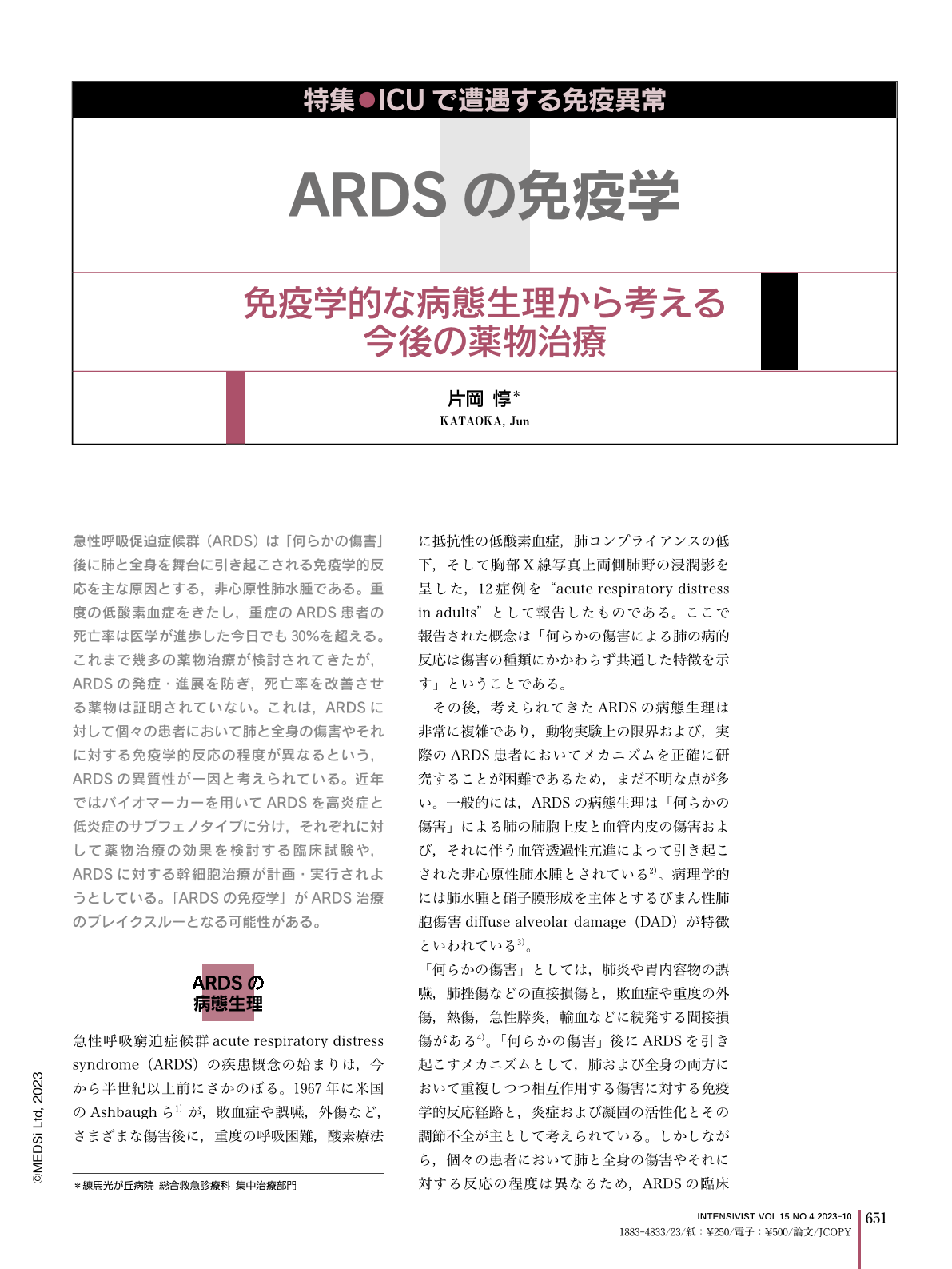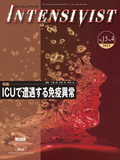Japanese
English
- 有料閲覧
- Abstract 文献概要
- 1ページ目 Look Inside
- 参考文献 Reference
急性呼吸促迫症候群(ARDS)は「何らかの傷害」後に肺と全身を舞台に引き起こされる免疫学的反応を主な原因とする,非心原性肺水腫である。重度の低酸素血症をきたし,重症のARDS患者の死亡率は医学が進歩した今日でも30%を超える。これまで幾多の薬物治療が検討されてきたが,ARDSの発症・進展を防ぎ,死亡率を改善させる薬物は証明されていない。これは,ARDSに対して個々の患者において肺と全身の傷害やそれに対する免疫学的反応の程度が異なるという,ARDSの異質性が一因と考えられている。近年ではバイオマーカーを用いてARDSを高炎症と低炎症のサブフェノタイプに分け,それぞれに対して薬物治療の効果を検討する臨床試験や,ARDSに対する幹細胞治療が計画・実行されようとしている。「ARDSの免疫学」がARDS治療のブレイクスルーとなる可能性がある。
Acute respiratory distress syndrome (ARDS) is a noncardiogenic pulmonary edema primarily due to an immunological response triggered in the lungs and systemic setting after “injury”. It results in severe hypoxemia,and the mortality rate for patients with severe ARDS exceeds 30% even with today's advances in medical science. Despite numerous drug therapies,no drug has been proven to prevent the onset and progression of ARDS and to improve mortality,which is thought to be due in part to the heterogeneity of ARDS,with individual patients having different degrees of pulmonary and systemic injury and immunologic responses to ARDS. In recent years,clinical trials have been conducted to examine the effect of drug therapy on ARDS by dividing the disease into high and low inflammatory sub-phenotypes using biomarkers, and stem cell therapy for ARDS is being planned and implemented. Furthering our understanding of the “immunology of ARDS” may therfore lead to breakthrough in ARDS treatment.

Copyright © 2023, MEDICAL SCIENCES INTERNATIONAL, LTD. All rights reserved.


